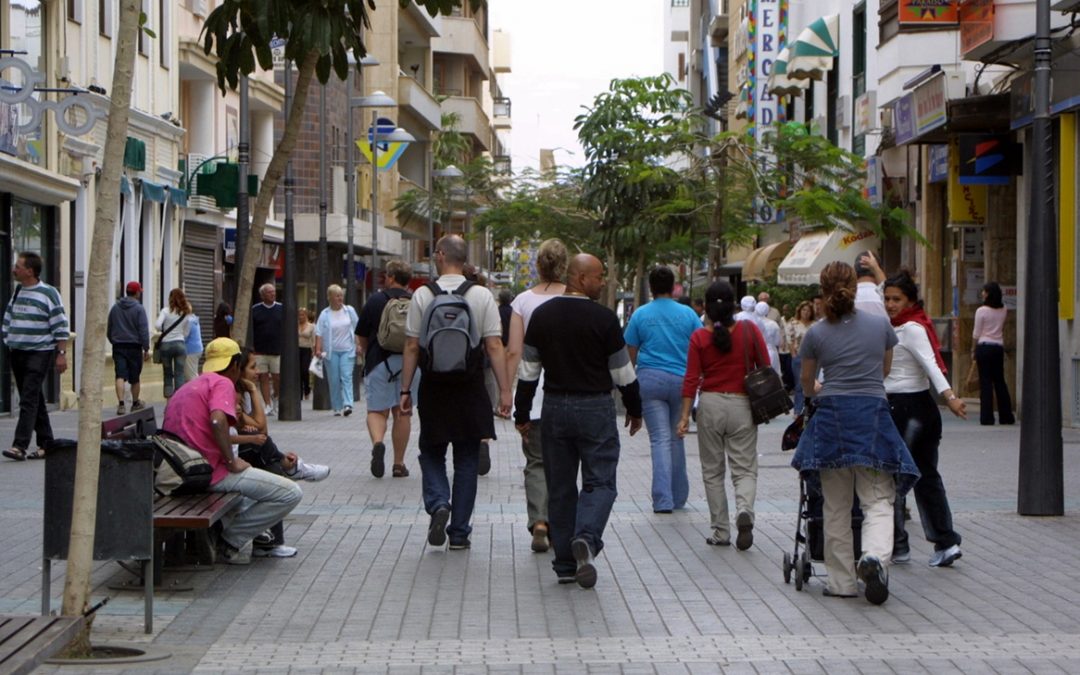ERTE are extended until May 31
The Government, employers and unions have agreed on Tuesday to extend the Temporary Employment Regulation Files (ERTE) until May 31, with practically the same conditions that are in force today. This means that the more than twenty thousand people who are currently in an Erte on the island of Lanzarote , a figure that is expected to increase this month with the closure of the hotel complexes that were still open on the island, will have five months and a half of tranquility ahead.
The fear of the Government is that throughout the country the number of people who are in Erte will swell the unemployment lists. In Lanzarote, these 20,000 people could join the more than 18,000 who are unemployed, and double the number, which would be an unmitigated catastrophe in the history of the island.
Agreement details
The agreement proposes extending the ERTE until May 31, maintaining the same exemption and protection scheme, as well as the employment safeguard clauses for six months, the prohibition of distributing dividends and the prohibition of operating in tax havens. “We maintain and extend the protection measures for a group that has been severely beaten,” said Díaz.
The coverage is also extended to some activities or CNAE and administrative changes are included that will mean the automatic extension of the files in progress, discharging management and bureaucratic costs to the companies.
“We incorporated an administrative simplification: companies will not have to file a collective claim again, they will simply have to communicate the fact of the ERTE”, explained the Minister of Labor.
At the moment there are more than 755,000 workers covered by this mechanism, according to Social Security data, although at the peak of the pandemic the figure reached 3.4 million.
According to Díaz, “the tool is working well”, so the message is of “tranquility, although there are hard months”, and has pointed out that this new extension involves a cost of more than 5,000 million euros.
The Government and the social agents reached an agreement in principle this Friday, the Minister of Labor pointed out, although until Tuesday it has not been ratified by the employers and the unions.
“The DNA of this Government is called social dialogue”
“The time has come for businessmen to trust this Government and leave prejudices behind,” Diaz stressed, who also highlighted the success of negotiations with social agents. “The DNA of this government is called social dialogue,” he said.
The board of directors of the Spanish Confederation of Business Organizations (CEOE) met early this Tuesday to vote in favor of a new extension of this mechanism – the fourth since the arrival of the pandemic. The same decision has been taken by the governing body of the Spanish Confederation of Small and Medium Enterprises (Cepyme) this afternoon.
The unions have also been in favor. This Tuesday, both the General Union of Workers (UGT) and Workers’ Commissions (CC.OO.) have shown their agreement with the agreement, which was finished polishing late this Monday, and which only needed “some last-minute concretion time”.
The general secretary of the UGT union, Pepe Álvarez, has affirmed in Las Cosas Claras, of TVE, that the decision on the extension of the ERTE until May 31 was taken. “There is an agreement, the Government yesterday sent us the document and the trade union organizations are examining it to guarantee that it is a clear and concise decree,” he stressed.
The employer’s association had been reluctant until now to give its approval to the text given the government’s refusal to make the clause of “safeguarding employment” more flexible, which obliges companies not to fire for six months. If this clause is breached, the employer should return all financial aid received regardless of the conditions of dismissal.
The employers tried that, in case of being forced to fire, only the contributions of those workers were returned, but they did not find support from either the Executive or the unions.
In this regard, union leaders have confirmed that the commitment to maintain employment for six months remains as it was, “literally”. “We have not given in at the table and it is included,” said Sordo, to which Álvarez added that Spain is one of the countries that requires less time to maintain employment. The Minister of Labor has also positioned herself in the same line.
Finally, with the new restrictions imposed to stop contagion in this third wave, which could lead many companies to avail themselves of these mechanisms, the CEOE has given its arm to twist and it is expected that this new extension will be approved by the Council of Ministers next Tuesday, January 26.
For the vice president of the CEOE Tourism Council and president of Hospitality of Spain, José Luis Yzuel, this is good news, despite the fact that “there are things that will have to be modified and renegotiated.” In an interview on Canal 24 Horas this Tuesday, he indicated that he is “very happy” that the ERTEs are being prolonged since “it is a very important help for companies in a situation of total ruin.”





